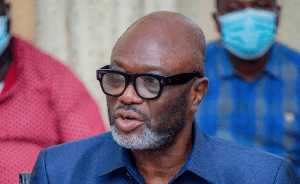The President of GUTA, Dr. Joseph Obeng, has argued that creating an enabling environment, including flexible tax systems, is one of the surest ways to ensure the success of the 24-hour economy policy.
Speaking in an interview on Frontline on Rainbow Radio 87.5FM, Dr. Obeng stated,
“If the government is prepared to create an enabling environment by reducing taxes and enhancing productivity, the policy will succeed. Without creating an enabling environment and enhancing productivity, it would be difficult to implement the policy. Increased productivity will have a long-term positive impact on the policy.”
He further explained that if the demand for goods and services increases, business owners will expand their operations, employ more people, and create opportunities for shift-based work.
“Without productivity, the 24-hour economy will fail. It is intertwined with creating an environment for businesses to thrive, expand, and become more competitive.
“We cannot compete if we continue to have nuisance taxes, and the depreciation of the cedi will prevent us from exporting to neighboring countries. For example, if we produce 1,000 goods and increase production to 10,000, it will require more hands, so businesses will employ more people,” he added.
Meanwhile, President John Dramani Mahama has appointed Mr. Augustus Goosie Tanoh to oversee his flagship 24-hour economy policy.
Tanoh has been appointed as the Presidential Advisor for the 24-Hour Economy and Accelerated Export Development.
The 24-hour economy, according to the incoming administration, will be a deliberate policy intervention to encourage and support businesses and companies to operate 24/7, preferably in a three-shift system of eight hours each, by creating an enabling environment that promotes productivity, competitiveness, and well-paying jobs.
The policy is anchored on Mahama’s overarching vision to create sustainable jobs for Ghanaians. This will be achieved through modernizing and mechanizing agriculture, providing incentives for the private sector to thrive, promoting agro-processing and manufacturing, and transforming Ghana into an import-substitution and export-led economy, among other strategies.
The 24-hour economy policy is expected to provide a significant boost to John Mahama’s import-substitution and export drive.
John Mahama has consistently explained that the policy will help stabilize the national currency, improve reserves, reduce inflation and interest rates, and create more employment opportunities for Ghanaians.



